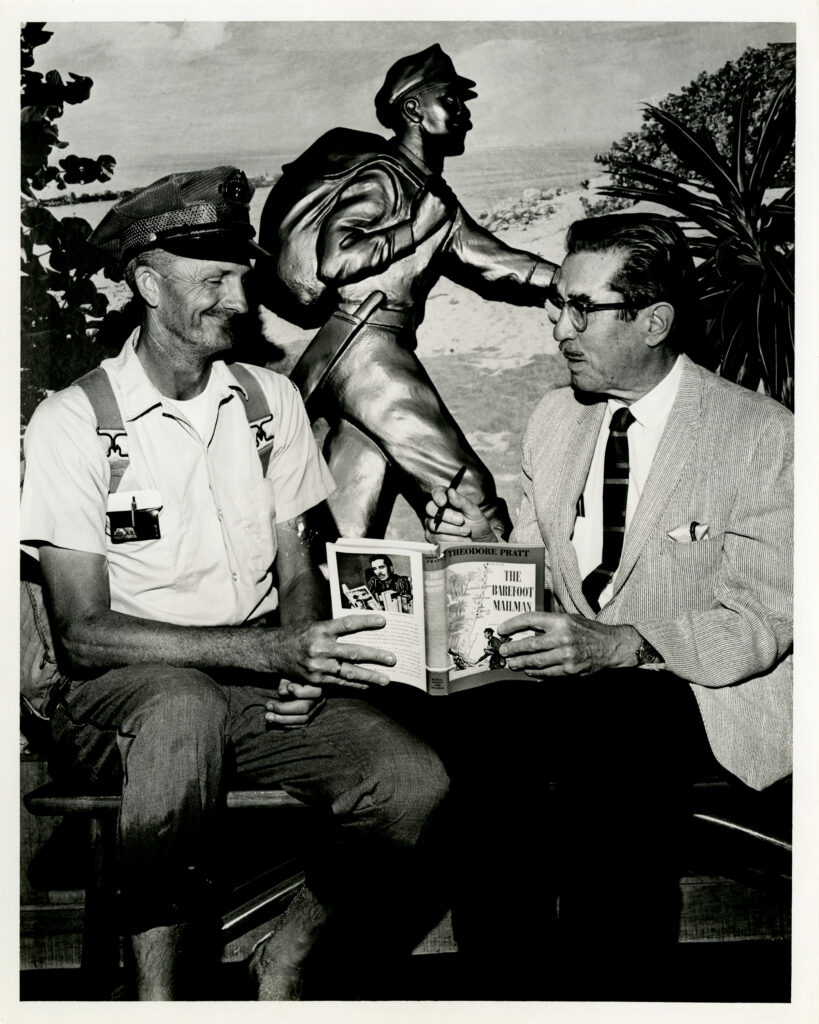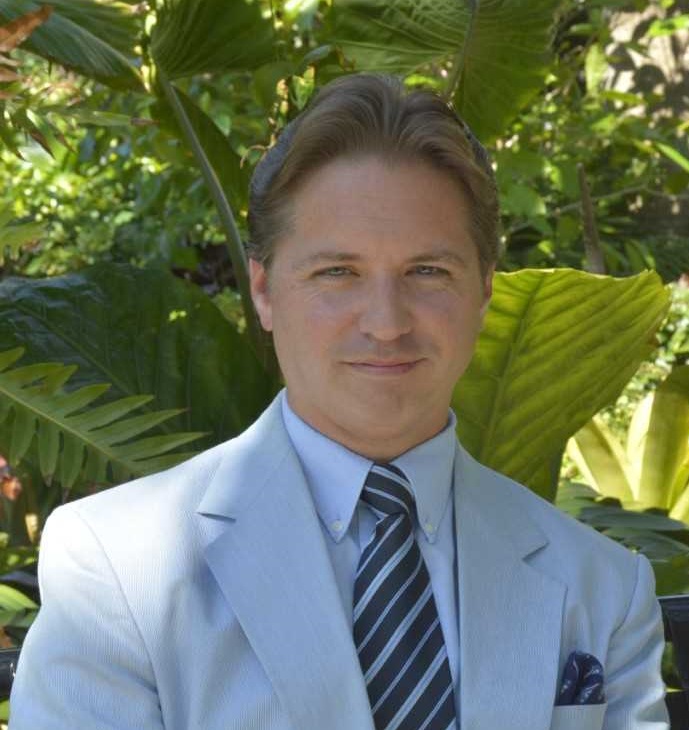By Taylor Hagood
“Boy, we just got under the line.”
So said Columbia Pictures director Earl McEvoy in July 1950 about capturing a stretch of virgin beach on film just before new construction began.

The movie was “The Barefoot Mailman,” based on a novel by South Florida writer Theodore Pratt. Known as the “Literary Laureate of Florida,” Pratt was tasked with finding an on-location filming site. Biscayne Bay was the best he could come up with, and there would be only a narrow window to shoot.
Ironically, Pratt’s novel itself dramatized rapid changes on the coast all the way back in the late 1880s. Inspired by the real-life mail deliverers who walked the coast before railroads were built, the novel takes its particular story from James E. Hamilton, who died mysteriously along his mail route in 1887.
Pratt did extensive research to write the book, which follows the fictional Steven Pierton as he learns the proper technique of beach-walking, fights off dangerous “beach combers,” falls in love with his first “foot-passenger” and even names Palm Beach.
To some extent, Steven himself represents the intrusion of human community on the South Florida landscape. But like the Seminoles he sympathizes with, Steven respects land and sea and seeks to live with nature, not harm or alter it. By the novel’s end, though, the Celestial Railroad threatens the barefoot route with more development soon to come.
Curiously, Steven and his bride never appear in Pratt’s other “Florida Trilogy” novels, “The Flame Tree” and “The Big Bubble.” Like the real-life barefoot mailmen, Steven remains confined to a short-lived idyllic moment in history when the South Florida environment and its human inhabitants still lived in a manageable degree of balance and harmony.
Pratt himself railed against the crushing encroach of profit-driven “civilization” in the 1950s. He and his wife, Jackie, fled their home in Old Floresta in Boca and bought a house in the piney woods west of Delray Beach. Florida had become “unnatural,” he complained to a Fort Lauderdale News reporter in 1958. Meanwhile, his already well-established relationship with famed environmentalist writer Marjory Stoneman Douglas deepened.
A few years later, Pratt wrote “Tropical Disturbance,” a novel about a hurricane destroying the puny constructions of humankind. Nature is not exactly vengeful in that story — it is just done with the whole thing.
Finding virgin beach now in 2025 for filming would mean serious camera angle manipulation. Or simply making the reality of human encroachment part of the story.

The latter happens in the 2024 Apple TV series “Bad Monkey,” adapted from Carl Hiaasen’s novel of the same name. Andrew Yancy (portrayed by Vince Vaughn) wages a one-man war on the architectural monstrosity next door while doing his part to protect turtles and baby Key deer.
Hiaasen has picked up the torch Pratt, Douglas and others carried, creating a cast of environmental warriors. The most famous is ex-Florida governor turned loner-warrior, Clinton Tyree, known as “Skink.” Hiaasen will surely further the cause with his new novel, “Fever Beach.”
Literary warfare can seem futile against the immense power of commerce, and the South Florida coast continues to bear the brunt of development. But literature has its own strength. Words shape opinion.
Hundreds of people attended Hiaasen’s appearance at the Boca Raton Arts Festival this past March, and hundreds of thousands read his words. As he wrote when he signed a copy of one of his books for me: “Skink Lives!”
Taylor Hagood is a professor of American literature at Florida Atlantic University and the author of “Theodore Pratt: A Florida Writer’s Life.” Banner image: A painting of “The Barefoot Mailman” by Stefan Dovanos, which hangs in a U.S. Post Office in West Palm Beach (Stefan Dovanos, Public domain).
Sign up for The Invading Sea newsletter by visiting here. To support The Invading Sea, click here to make a donation. If you are interested in submitting an opinion piece to The Invading Sea, email Editor Nathan Crabbe at nc*****@*au.edu.




Enjoyed the article concerning Carl Hiaasen and his role in campaigning for the environment via his literature.
Hiaasen’s books are fun to read and educate through his humor, his recurring characters send a message without being heavy handed.
Never read any of Pratt’s novels but now because of this article, I think I will. I’m living with devastation to land that has been happening but now is getting worse here in Florida. I live on Florida’s west coast and the building here is very alarming because it is everywhere. I would have thought after Ian, Helen and Milton it would have slowed down — but that was wishful thinking.